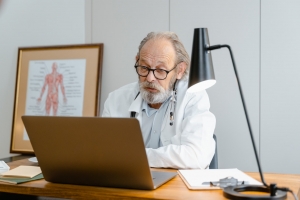When traditional treatments for depression, anxiety, or PTSD fall short, people increasingly look to alternative approaches that combine research with carefully structured care. Odyssey Retreats, which ran the first legal psilocybin retreat in the U.S., has become one example of how science-backed therapy can be delivered in both private and group settings. Their model emphasizes safety, therapeutic preparation, and integration, elements that researchers agree are critical to achieving lasting benefits.
Psilocybin therapy is no longer confined to experimental labs. Academic institutions, regulatory agencies, and specialized providers are all shaping a future where this treatment might become part of mainstream mental health care. Here's a closer look at the science behind psilocybin, the safeguards that matter most, and what consumers should know before considering it.
What the Research Reveals
Evidence for Effectiveness
- Depression: Clinical trials at Johns Hopkins University have shown that psilocybin therapy can produce significant, rapid, and sustained improvements in people with major depressive disorder. In one study, participants reported relief lasting weeks or even months after just two carefully monitored sessions.
- Anxiety and End-of-Life Distress: Controlled studies suggest psilocybin can ease existential anxiety in patients with terminal illnesses, often helping them reconnect with meaning and reduce fear.
- Addiction and Habits: Preliminary trials indicate psilocybin may help break dependence on nicotine or alcohol when paired with behavioral therapy, though larger studies are needed.
Regulatory Context
- The U.S. Food and Drug Administration (FDA) has granted breakthrough therapy designation to psilocybin therapy for treatment-resistant depression, recognizing its potential and expediting research.
- In 2023, the FDA also released draft guidance for clinical trials of psychedelics, addressing safety monitoring, informed consent, and proper therapeutic structures.
Why Set and Setting Matter

Researchers stress that the therapeutic environment is as important as the compound itself. Unlike conventional antidepressants, psilocybin produces an acute experience that can be emotionally intense.
- Preparation: Before a session, participants meet with facilitators to discuss intentions, mental health history, and expectations.
- Supervision: During the session, trained guides monitor safety, provide reassurance, and help participants navigate challenging emotions.
- Integration: Afterward, participants process the experience, drawing connections to their lives and building new coping strategies.
Odyssey’s retreats and private programs mirror these steps, showing how providers outside of research settings are adopting evidence-based frameworks.
What Consumers Should Consider
Before pursuing psilocybin therapy, potential participants should weigh several key factors:
- Medical Screening: Not everyone is eligible. People with a history of psychosis or certain cardiovascular conditions may face heightened risks.
- Legal Status: Psilocybin remains a federally controlled substance in the U.S. Outside of state-regulated programs, it is not legally available. Consumers should verify the legal framework in their jurisdiction.
- Facilitator Credentials: Look for providers with training in mental health care and psychedelic-assisted therapy. Ask about emergency protocols and safety measures.
- Realistic Expectations: While many report transformative outcomes, results vary. Psilocybin is not a guaranteed cure and often works best alongside established therapeutic practices.
- Financial Costs: Because it is not yet mainstream, most insurance plans do not cover psilocybin therapy. Retreats and supervised sessions may involve significant out-of-pocket expense.
Broader Trends and Future Outlook
The momentum behind psilocybin therapy is building rapidly:
- Expansion of Academic Research: Institutions like Johns Hopkins, NYU, and UCSF are launching dedicated psychedelic research centers, signaling growing credibility.
- State-Level Frameworks: Oregon and Colorado have already moved forward with regulated psilocybin services, and other states are exploring similar pathways.
- Public Demand: As stigma decreases, more people are open to exploring psychedelics as part of mental health care. A recent survey found strong public support for further research and limited medical access. At the same time, experts caution that the hype must not outpace the science.
- Standardization and Safety: Standardization of protocols, long-term safety data, and large-scale trials are essential before psilocybin can be widely integrated into medical practice.
Balancing Promise with Responsibility
Psilocybin therapy has great potential and requires great responsibility. It offers hope for people who have exhausted conventional options, but it must be approached with care. The science underscores that outcomes are tied not only to the substance, but also to the system around it: skilled facilitation, safe environments, integration, and transparency.
Organizations like Odyssey highlight how research-driven approaches can make these principles real for participants, bridging clinical evidence and lived experience. Meanwhile, regulators and researchers continue the work of proving efficacy, defining safeguards, and ensuring equitable access.
Psilocybin therapy sits at the intersection of science and cultural change. While more evidence is needed, its trajectory is clear: a growing role in treating conditions that resist conventional therapies.
For those considering it, the key lies in finding reputable providers, understanding the legal landscape, and approaching the journey with informed caution. With careful expansion, psilocybin could become not only a breakthrough therapy for individuals, but also a paradigm shift in how society understands and treats mental health.






